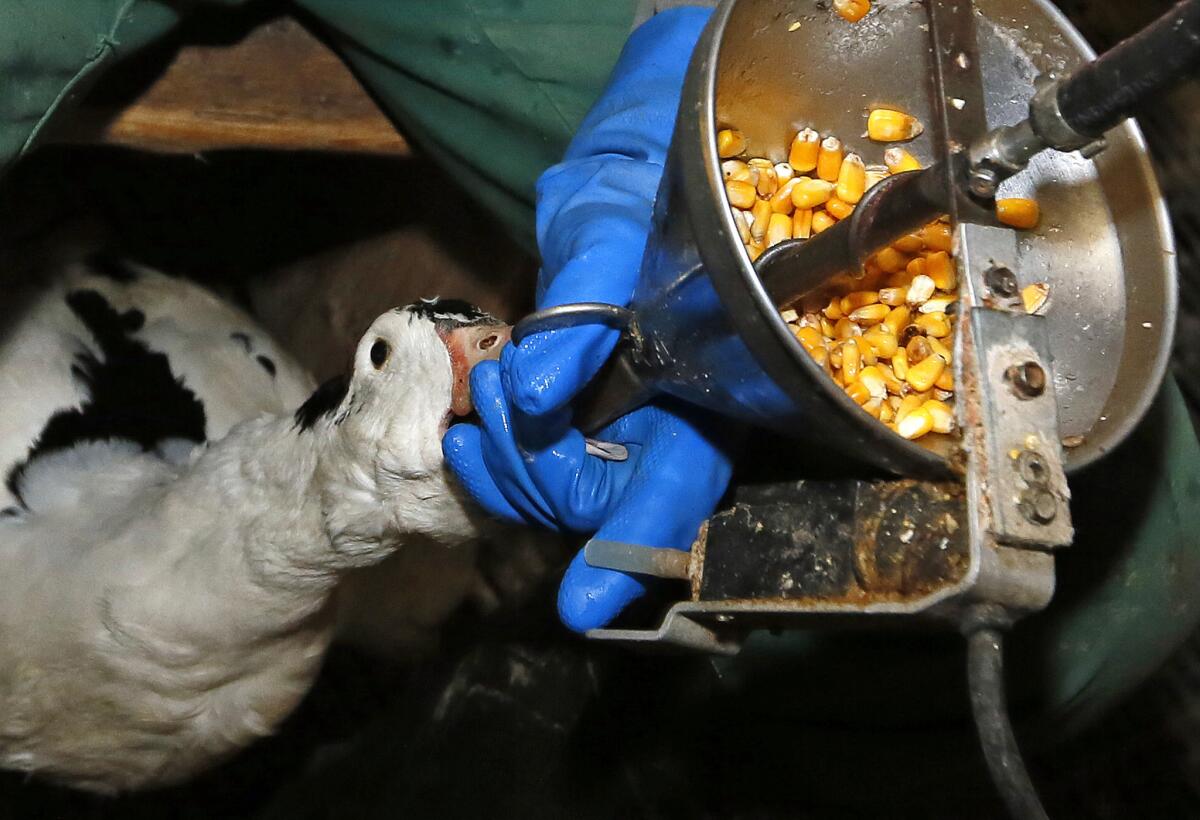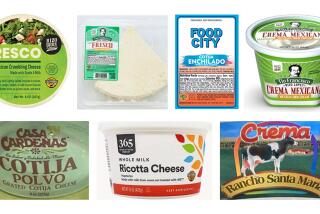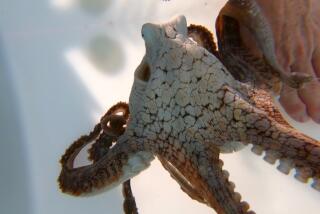Opinion: Forget about ordering foie gras for takeout in California

No, foie gras is not back on the menu in California, unless chefs and restaurateurs want to give away the expensive delicacy.
Producers of foie gras, which is typically made from the fattened livers of geese and ducks that have been inhumanely force-fed, won a partial victory Tuesday in their years-long battle against the state ban. But the only thing that they get to do as a result of U.S. District Judge Stephen V. Wilson’s ruling is sell the stuff from out of state to individual California consumers for personal use.
Nevertheless, the beleaguered producers, who have mostly lost their fights against the 2012 ban on foie gras in California, will take that as a win. And as one of them told me Wednesday, they’ll keep fighting for more. That seems foolhardy to me, but it’s their money.
The ban on foie gras has always been primarily intended to stop the inhumane production process and halt the sale of it by California restaurants and stores. Those parts of the ban remain in place. However, according to the judge, the ban was never intended to prohibit personal use. You know — sitting on your couch during the pandemic, watching “Hamilton” on TV and stuffing foie gras down your gullet much the way farmers do to geese and ducks. The difference is that farmers are forcing it down the gullets of the birds through tubes.
“Of course, once the foie gras reaches California, it cannot be resold within the state,” the judge wrote. (The news stories didn’t quite seem to get this.)
Farmers and restaurateurs have relentlessly and mostly unsuccessfully fought this law. They lost in federal court (and then on appeal at the 9th Circuit) on a claim that California’s law unconstitutionally impeded interstate commerce. Then they argued that the law violated the federal Poultry Products Inspection Act, which forbids states from imposing regulations on ingredients that differ from the federal regulations. A federal judge agreed, but the 9th Circuit once again reversed that decision. The Supreme Court refused to hear the case in January 2019.
And the city of New York decided last year to ban the sale of foie gras in restaurants and stores, starting in 2022.
Why do they keep fighting the state of California? Why gear up to fight the city of New York?
Obviously, they have commercial reasons. In a usual year (which 2020 is not), Hudson Valley Foie Gras, in Ferndale, N.Y., gets 40% of its sales from foie gras. (The company also sells duck meat and byproducts.) They are also fighting on principle, Marcus Henley, the company’s vice president, told me. He believes his ducks live under better conditions than on a large commercial farm. (Even if that is the case, it’s mostly because factory farming is, arguably, the most miserable situation any animal can be put in.)
Henley spent some time telling me that ducks don’t have the same protective gag mechanism that humans have — and that they don’t mind being deliberately over-fed when they are force-fed.
I don’t believe there’s anything benign about force-feeding any animal. A Humane Society of the U.S. survey of the research on this kind of farming concludes, “Substantial scientific evidence suggests that force-feeding can cause pain and injury from feeding tube insertion, fear and stress during capture and handling, gait abnormality due to distended livers, pathologies in liver function,” among other things.
No one should be raising ducks and geese like this to make foie gras. The law banning the sale in California has survived nearly a decade of court battles. Producers should realize this law is not going away.
More to Read
A cure for the common opinion
Get thought-provoking perspectives with our weekly newsletter.
You may occasionally receive promotional content from the Los Angeles Times.










